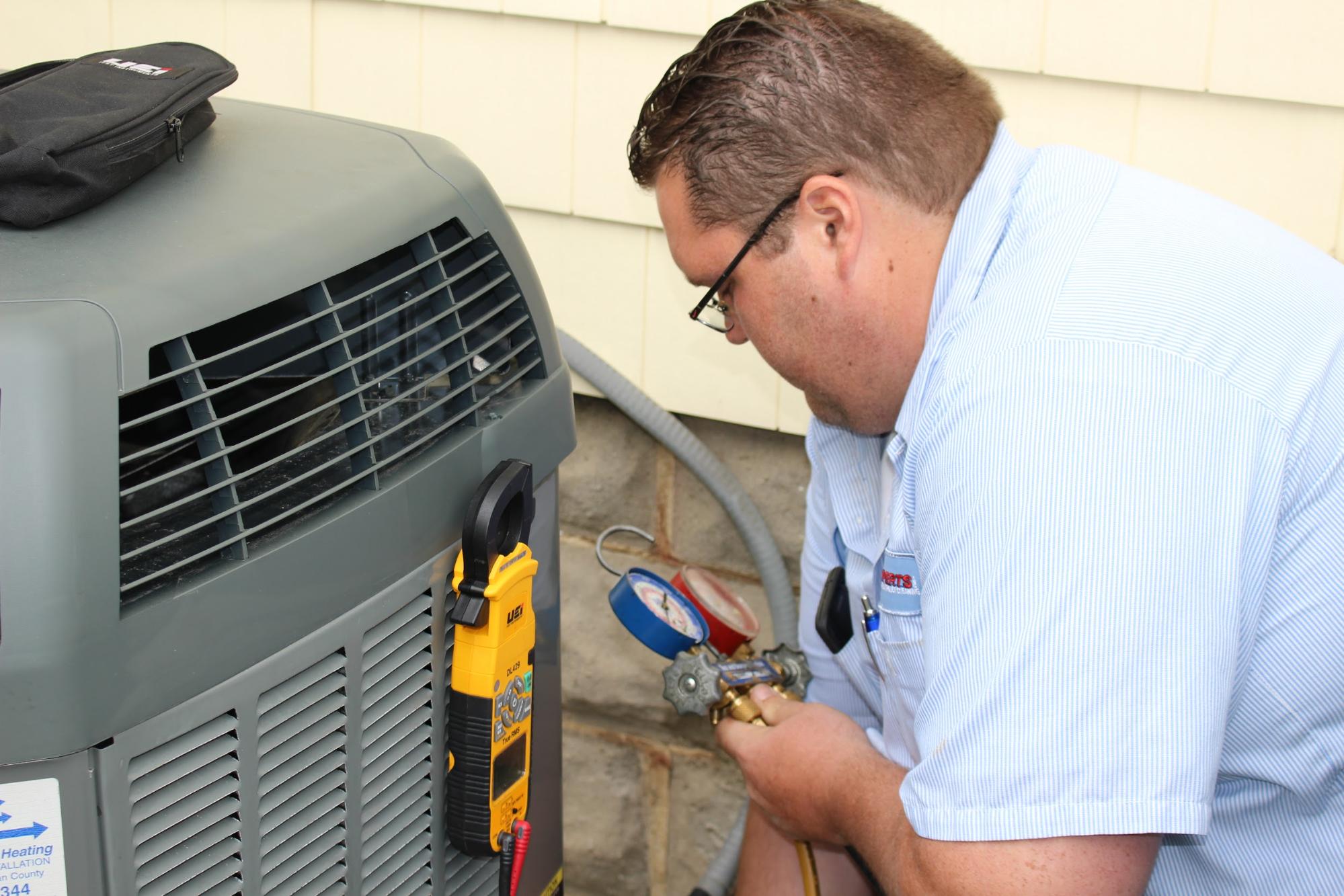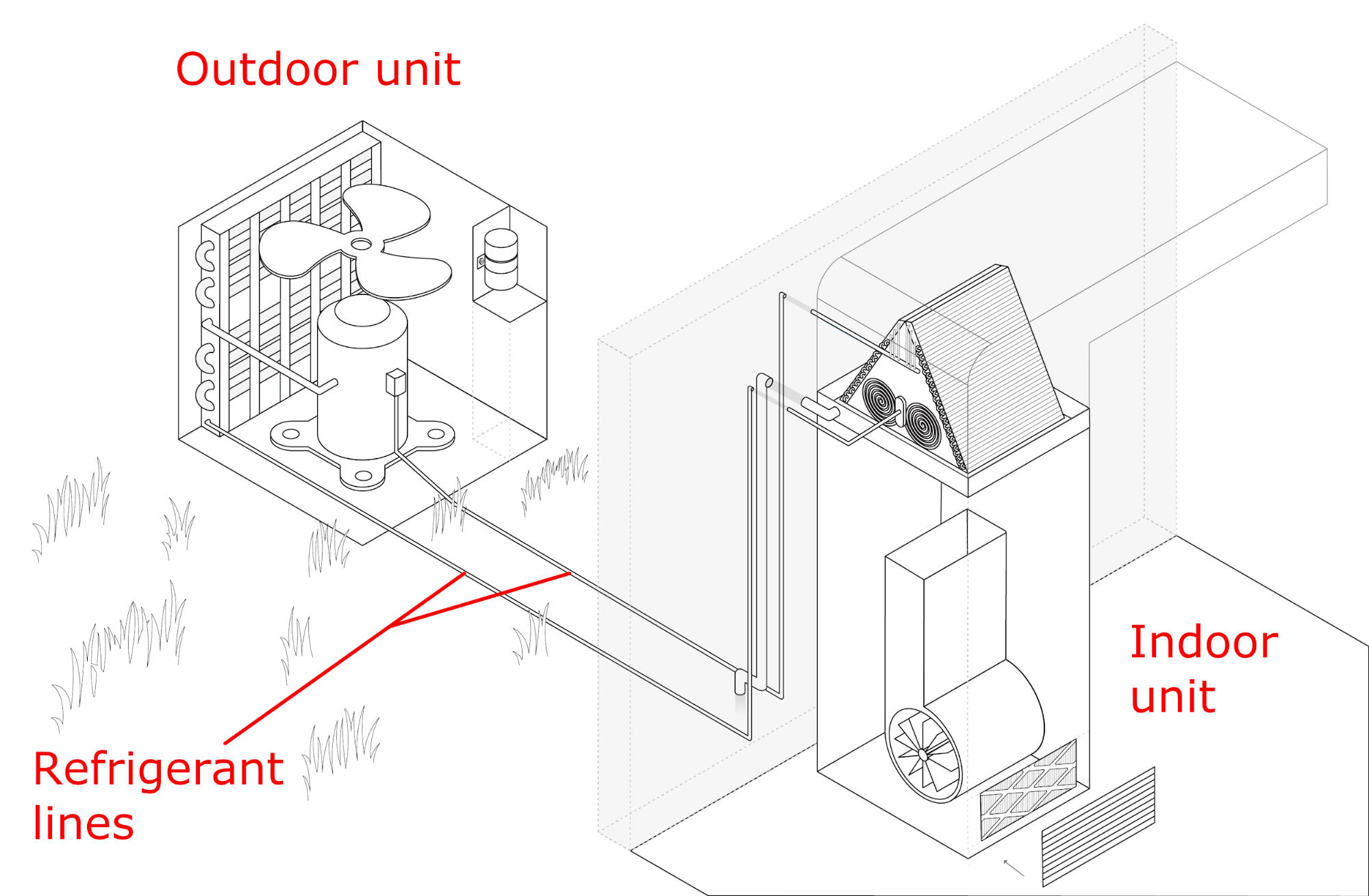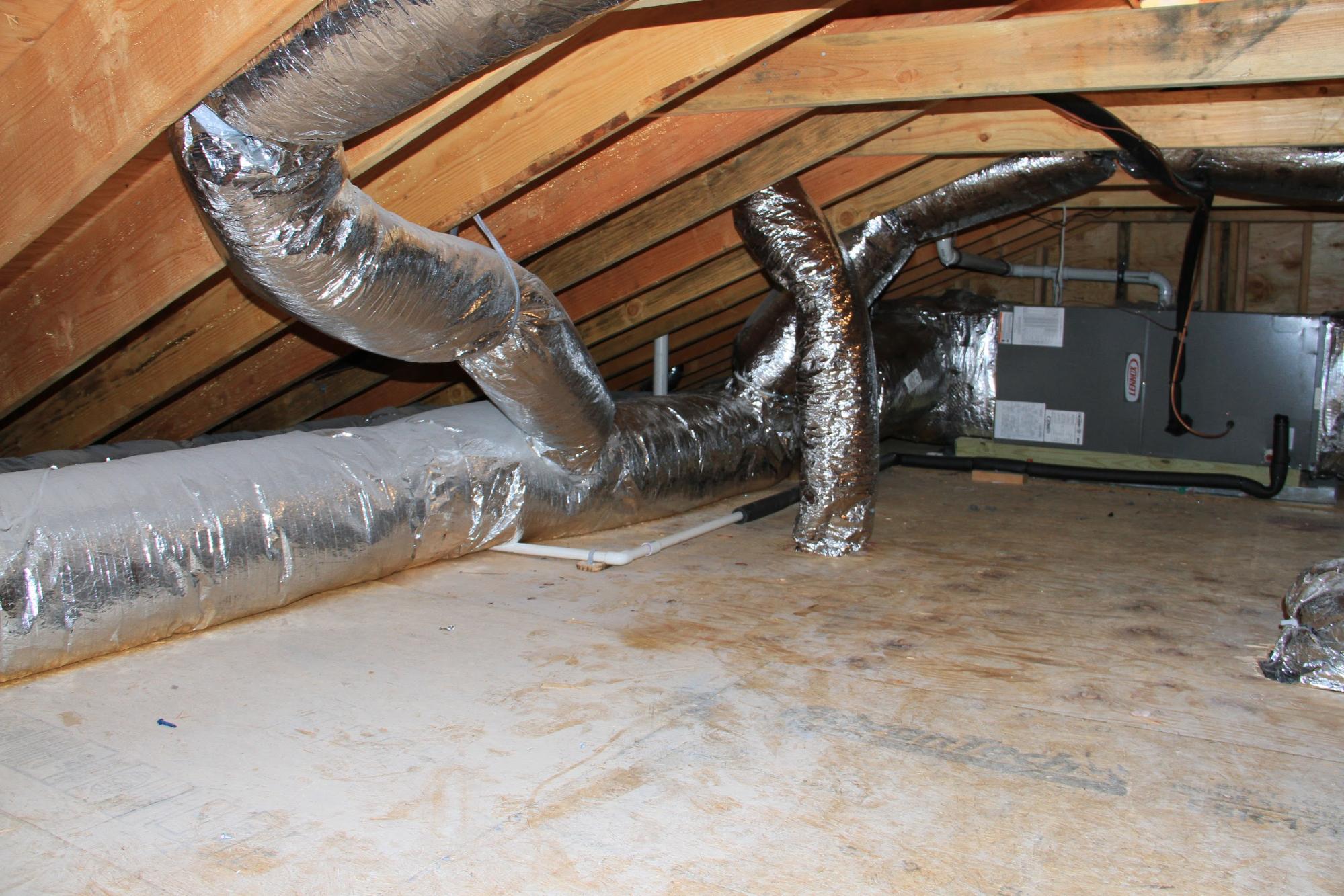Why is My AC Blowing Hot Air? A New Jersey Tech Explains
November 11, 2024

There are several reasons your air conditioner might be blowing hot air.
But before you call a technician for an air conditioning repair, check the following to make sure the problem isn’t something you can fix without the help of a professional:
- Make sure your thermostat is set to “cool” instead of “heat”
- Make sure your fan is set to “auto” instead of “on”
Is your AC still blowing warm air after this? If so, you most likely need help from a professional.
4 bigger issues that can cause this annoying problem include:
- Low refrigerant levels
- Dirty evaporator coils
- Leaking air ducts
- Dirty outdoor unit
Below, we’ll explain each of these issues in more detail, so you can get a better understanding of why your AC may be blowing hot air and what next steps you should take to fix it.
Reason #1: Low refrigerant
Your AC system actually cools your home’s air by removing heat from it. It does this via a substance called refrigerant. Refrigerant circulates in your indoor unit, absorbs heat from your home’s air and then moves to your outdoor AC unit where that heat is dispersed outside.
If your AC is low on refrigerant, it means that less heat is being removed from your home’s air, and your AC will blow warmer air back into your home.
To determine if your AC system is low on refrigerant, you’ll need a technician to come take a look. However, if you notice ice forming on your refrigerant lines or hear a hissing noise (sound of refrigerant escaping) somewhere along the refrigerant lines, low refrigerant is likely your issue.
Now, your refrigerant lines are a closed-loop system, which means unless there is a leak in the line, you should always have the same amount of refrigerant. So, if your system is low on refrigerant, it means there’s a leak somewhere. To fix this, a tech will need to find and repair the leak and then refill your refrigerant lines.
Reason #2: Dirty Evaporator Coils
The evaporator coil is the part of your AC system that houses refrigerant lines. Warm air from your home is blown over the evaporator coil and the heat from that air is absorbed by the refrigerant.

The refrigerant in your AC's evaporator coil absorbs heat, leaving cooler air to be blown back into your home.
But if the coils are covered in a thick layer of dirt or grime, the refrigerant won’t be able to remove as much heat from the air as it needs to, pushing warm air back into your home.
What causes dirty evaporator coils?
Over time, dirt and dust naturally make their way into your AC system and settle on your evaporator coil. While your air filter is put in place to catch dust, dirt and other contaminants before they enter your AC system, your air filter can’t capture ALL of the contaminants in the air. However, if you don’t change your air filter regularly, it will become clogged and can accelerate the amount of dust and dirt that make their way onto your evaporator coil.
What should I do?
Most of the time, your evaporator coils are located in the attic, basement or a closet, so we don’t recommend trying to clean the coils yourself. If you think dirty AC coils may be the issue, we would advise you to contact an AC technician who will clean your coils for you.
To prevent this from happening in the future, our suggestion would be:
- Change your air filter regularly (every few months if possible).
- Have a tech come annually for AC maintenance. During a quality maintenance visit, a tech typically cleans your AC’s evaporator coils.
Reason #3: Leaky Ducts
Your ducts are responsible for delivering cool air to the various rooms throughout your home. But, if there are leaks in your return ductwork, your AC system can suck in hot air, which will ultimately result in warmer air coming out of your supply vents. Why? Well, your ducts usually travel through unconditioned areas of your home, like your attic, where the air can reach temperatures up to 130 degrees. While your AC system is designed to cool warm air, it’s not designed to cool air that hot, and likely won’t be able to remove all of the heat from the air before sending it back into your home.

Example of ductwork located in an attic.
So, if there is a leak or multiple leaks in your ductwork, you will probably notice that the air coming from your vents is warm instead of cool.
Some additional signs that you have leaks in your ductwork include:
- High energy bills
- Lots of dust in the air
- Stuffy rooms or rooms that don’t cool off
Duct leaks are actually very common. In fact, in an average house, up to 40% of air is lost via holes or poor connections in ductwork. Usually, this is just the result of wear and tear over time. However, if you recently had ductwork installed, there could be a leak due to poor design or installation work (ducts could be misaligned).
If you think leaky ductwork is your issue, you should reach out to a professional who can inspect your ductwork, determine if it’s leaking and make any necessary repairs.
Reason #4: Dirty outdoor unit

As we mentioned above, your AC cools your home’s air by removing heat from the indoor air and dumping that heat outside.
If your outdoor unit is covered in dust or debris, your AC won’t be able to transfer the heat from the refrigerant to the outdoor air. Ultimately, this means that your AC won’t be able to get rid of as much heat as it needs to, which results in warmer air circulating throughout your home.
If you look at your outdoor unit and notice that it’s covered in a layer of dust or debris, this is likely your issue. To properly clean your outdoor unit, you’ll want to hire a technician. While you can clean your outdoor unit on your own, you can also end up damaging other important parts of your outdoor unit in the process.
Need help with an AC that’s blowing warm air? Our New Jersey pros can help!
Outside of the issues listed above, there are many other reasons your AC may be blowing warm air, including:
- Wiring issues
- Electricity issues
- Other issues with the condenser (outdoor unit)
To get an accurate diagnosis, you should contact a technician who will be able to tell you what the issue is and repair it if needed.
If you live in New Jersey and need help repairing your AC, contact Air Experts! We have over 25 years of experience helping NJ homeowners and we’d be happy to help you too.
